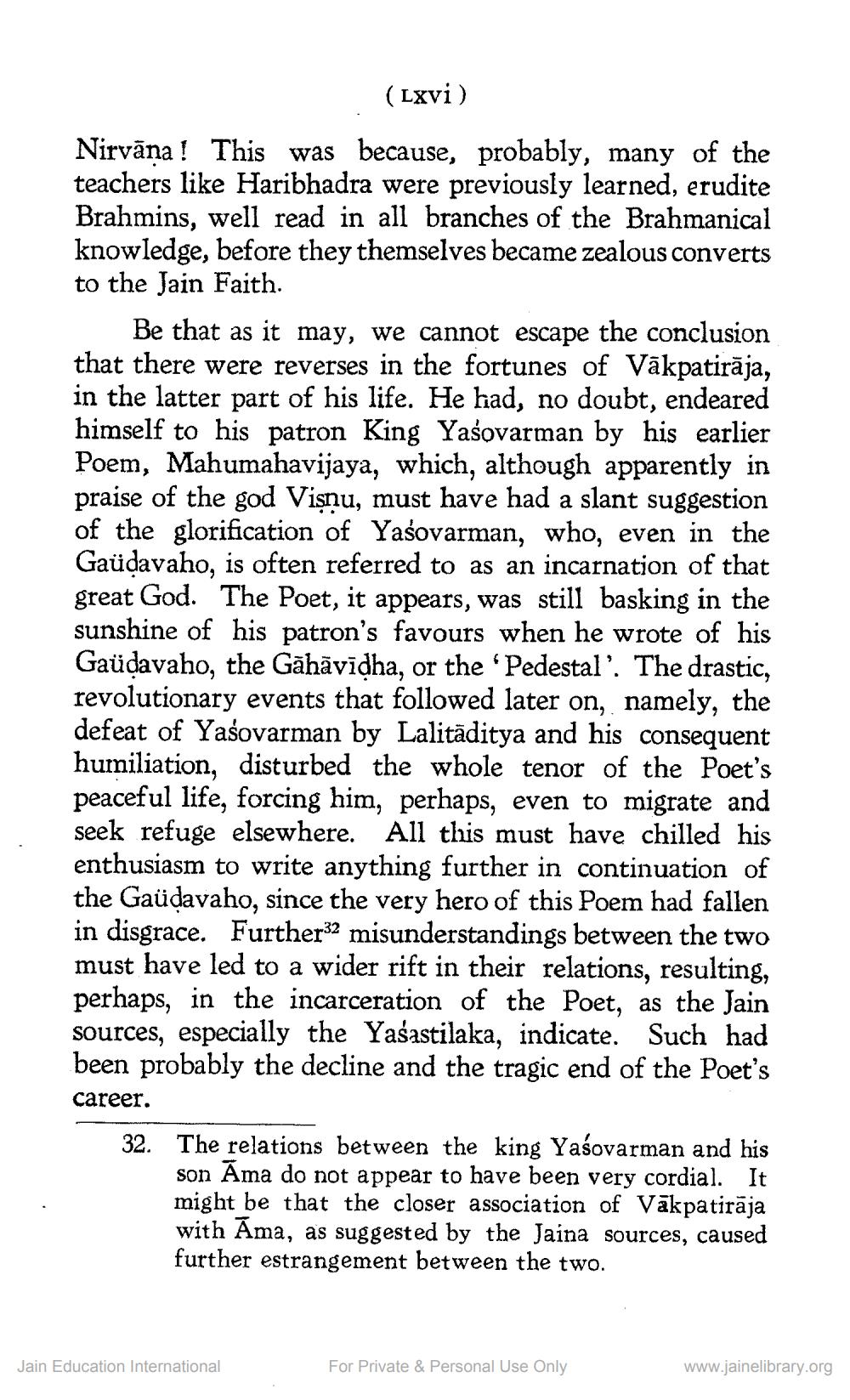________________
(Lxvi)
Nirvāna! This was because, probably, many of the teachers like Haribhadra were previously learned, erudite Brahmins, well read in all branches of the Brahmanical knowledge, before they themselves became zealous converts to the Jain Faith
Be that as it may, we cannot escape the conclusion that there were reverses in the fortunes of Vākpatirāja, in the latter part of his life. He had, no doubt, endeared himself to his patron King Yašovarman by his earlier Poem, Mahumahavijaya, which, although apparently in praise of the god Vişnu, must have had a slant suggestion of the glorification of Yašovarman, who, even in the Gaüdavaho, is often referred to as an incarnation of that great God. The Poet, it appears, was still basking in the sunshine of his patron's favours when he wrote of his Gaüdavaho, the Gāhāvīdha, or the 'Pedestal'. The drastic, revolutionary events that followed later on, namely, the defeat of Yasovarman by Lalitāditya and his consequent humiliation, disturbed the whole tenor of the Poet's peaceful life, forcing him, perhaps, even to migrate and seek refuge elsewhere. All this must have chilled his enthusiasm to write anything further in continuation of the Gaüdavaho, since the very hero of this Poem had fallen in disgrace. Further32 misunderstandings between the two must have led to a wider rift in their relations, resulting, perhaps, in the incarceration of the Poet, as the Jain sources, especially the Yaśastilaka, indicate. Such had been probably the decline and the tragic end of the Poet's career. 32. The relations between the king Yaśovarman and his
son Āma do not appear to have been very cordial. It might be that the closer association of Vākpatirāja with Ama, as suggested by the Jaina sources, caused further estrangement between the two.
Jain Education International
For Private & Personal Use Only
www.jainelibrary.org




